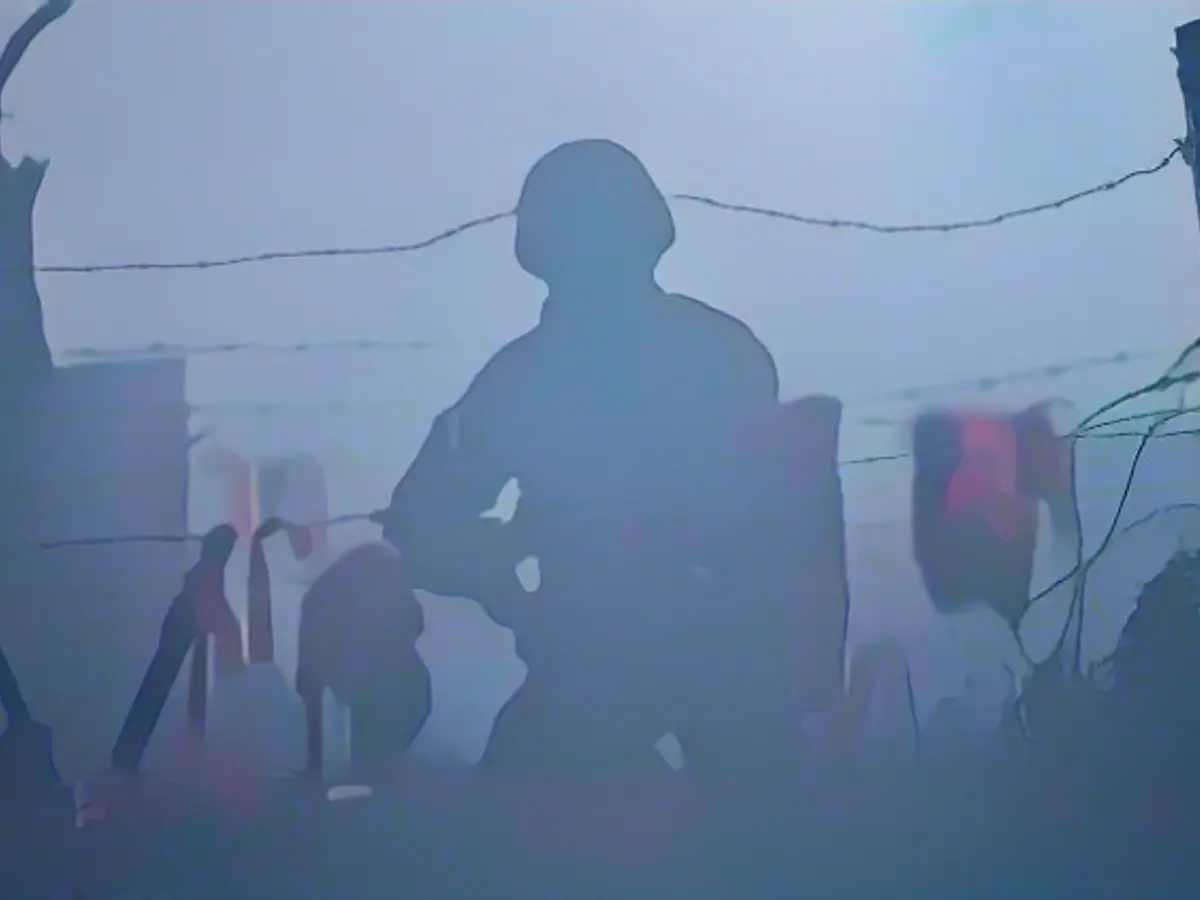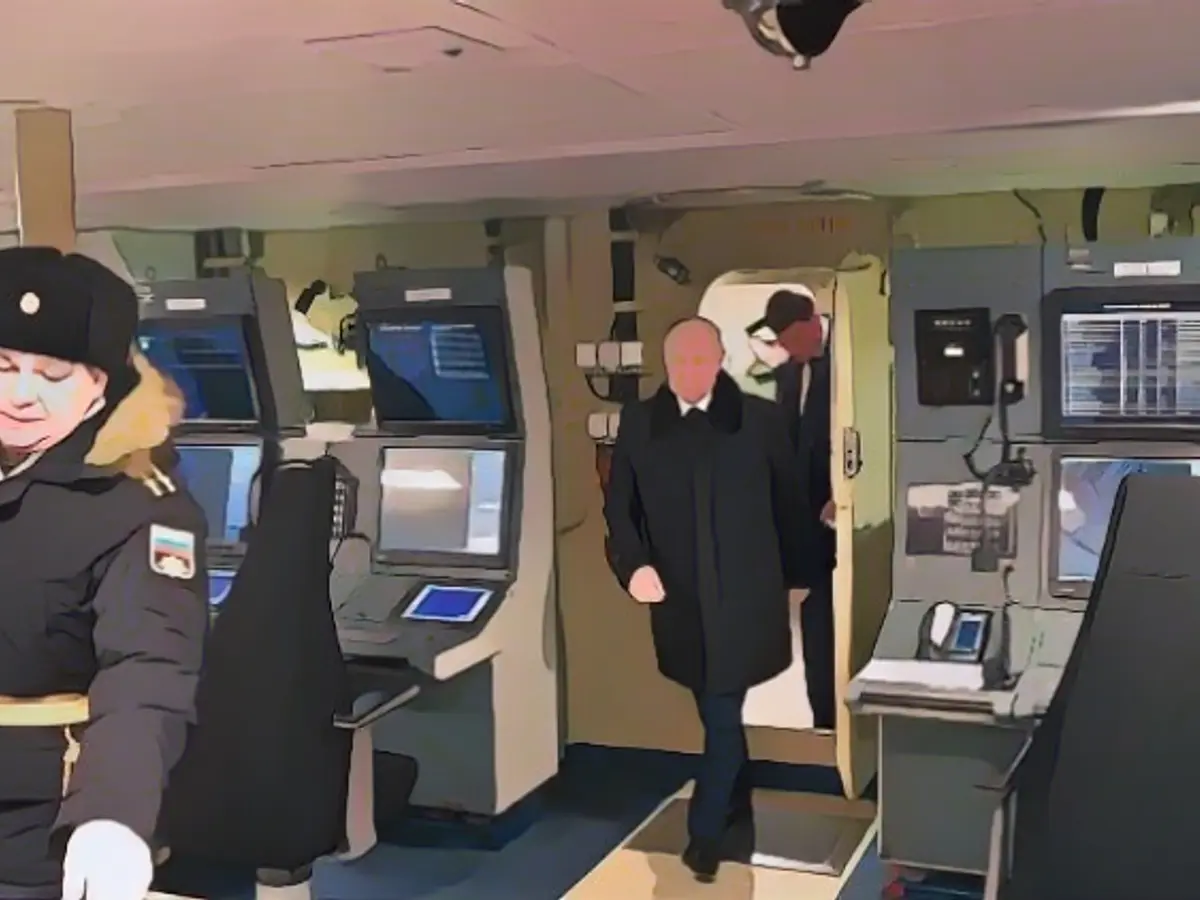USA's Aid Package Hangup Threatens Ukraine's Defensive Battle
Even moderately inclined Republicans in the US Senate will only approve an emergency aid package for Ukraine, providing it comes with tighter asylum laws. Ukraine issues a stark warning: failure to act swiftly could lead to defeat in the war against Russia.
The fate of Ukraine's defensive battle hangs in the balance in the US Congress. The stalemate between Democrats and Republicans in Washington is due to disagreements over an emergency aid package for Ukraine, which has been invaded by Russia. Blame is being cast in both directions.
The $110.5 billion emergency package for national security, comprising 60 billion dollars earmarked for Ukraine, finds mention in the draft bill. However, the allocation of funds seems murky. More than 43.6 billion dollars are set aside "for the US industrial base to bolster weapon production and stockpile ammunition," but it remains unclear which shortages stem from deliveries to Ukraine and which from deliveries to Israel.
The draft bill also designates 14 billion dollars for border control measures, including funds to support "recognized arrivals and unaccompanied children." This allocation has sparked criticism from Republicans, who advocate for stringent asylum laws and reduced migrant intake.
Senate Showdown
Tensions boiled over at this week's Senate briefing on the Ukraine conflict, as per CNN. The meeting, initially to be attended by Ukrainian President Volodymyr Zelenskyi, devolved into a heated exchange.
Republican Leader Mitch McConnell asked for border control to be addressed instead of Ukraine, leading to a heated argument. During the exchange, Republican Senator Tom Cotton confronted a general, asking why the border wasn't being secured, blaming the Democrats for allowing migrants to enter the country without proper screening.
The meeting was deemed a waste of time by Republican Senator Mitt Romney. Riling up Democrats, Romney questioned, "Is an open border more important to Democrats than Ukraine?"
GOP Concerns
According to the Washington Post, Republican senators are facing an uphill battle. Although it's almost certain that the Republicans will vote against the package en masse, Senate Majority Leader Chuck Schumer plans to put the supplementary budget to a vote this Wednesday.
Schumer sees an opportunity here, proposing that the Republicans introduce a border control bill that reflects their concerns; should eleven Democratic senators back the proposal, they could amass the required three-fifths majority of 60 votes.
On the other hand, McConnell is urging his Republican colleagues to reject the package to make a political point. The dispute over Ukraine aid plays a role in the standoff. A large majority of Democratic supporters throw their weight behind Ukraine, compared to a minority of Republicans.
Ukraine's Desperate Plea
Ukraine's Chief of Staff, Andriy Yermak, warned that without swift US approval of support, Ukraine could risk losing the war. White House officials also suggested that USD 4.8 billion in Pentagon funds for Ukraine would be exhausted by year-end.
Despite voices of caution within the US Department of Defense, the medium-term future remains uncertain. Senator Chris Murphy, a Democratic critic, expressed concern that if the Republicans reject aid for Ukraine due to border policy disputes, they would bear responsibility for global upheaval.
Republicans Walk a Fine Line
Recognizing the importance of backing Ukraine, Republican Senator Lindsey Graham also voiced his concerns. However, he tied approval of the package to addressing border security issues.
President Joe Biden decried the lack of support for Ukraine as "crazy" and "against US interests." He pledged to find a resolution, while Republican supporters of the aid package worry about the backlash from their electorate in the upcoming primaries.
Footnotes:
- This information is sourced from ntv.de. Any discrepancies or omissions may be due to the translation process.
Insights:
- Republicans' hesitancy to approve aid for Ukraine is driven by a mix of factors, including opposition to increased border security funding, concerns about the implications of aiding Ukraine for the 2024 elections, and ideological differences on foreign policy.
- The showdown between Democratic and Republican factions on the issue highlights the complexities of US politics, where competing interests can lead to seemingly intractable disputes.
- Despite the impasse, bipartisan support for Ukraine continues, suggesting that a compromise is possible.
:
- Moderate Republicans in the US Senate refuse to approve an emergency aid package for Ukraine unless the Democrats tighten asylum laws, raising concerns in Ukraine about their ability to endure the ongoing conflict against Russia.
- Republican Senator Mitt Romney criticized the Congressional briefing on the war in Ukraine, stating that the Democrats have to address the "open border" issue first before approving aid for both Ukraine and Israel.
- Ukrainian President Volodymyr Selenskyy was scheduled to attend the Senate briefing on Ukraine but canceled without providing a reason.
- The Republicans are caught between supporting Ukraine and addressing domestic concerns, leading to a stalemate in the US Congress over approving an emergency aid package for national security that includes funding for Ukraine and Israel.
- President Joe Biden promised to push for the approval of aid for Ukraine, acknowledging that the lack of support is "against the US interests."
Source:








